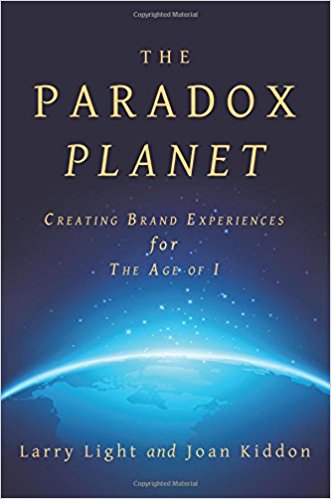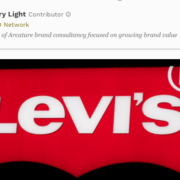The Future of Marketing
Marketing needs a new business purpose. Without a new business purpose, marketing will have no purpose. Instead of a profession, marketing has become a trade: the trade of managing and executing marketing and media tactics. Marketing has fallen in love with the increasing number of communication channel opportunities, social media, entertainment, events, online and so on. In fact, the most recent 2021 Deloitte CMO survey indicates that digital marketing is the CMOs primary responsibility. Digital is a communication channel. Communication channel management is not marketing management.
Marketers have been complicit in degrading marketing. In 2018, three years ago, in Deloitte’s previous CMO survey, the data indicated that CMOs are not fulfilling responsibilities that go beyond brand recognition, brand value and specific tactics. In the study, 34% of the 200 responding CMOs said their role in their organization was ‘storyteller’ while only 20% said their role was identifying and mapping new routes to client revenue. In other words, the CMOs focus first on what they do day-to-day rather than focusing on the client’s business results as the first priority.
The latest survey reports the same unfortunate situation. CMOs say their focus is on short-term value. CMOs still have no solid idea if what they do has any long-term value. Brand building and trustworthiness take time. Short-term is important but for enduring profitable growth of the enterprise, there needs to be a long-term as well.
Telling brand stories is fine. Producing quality revenue growth is better. Increasing penetration and building brand loyalty makes money. Being great storytellers is nice if it contributes to the client’s enduring profitable growth. Telling isn’t selling.
Even with the pandemic, it appears as if little substantive has changed over the past 3 years.
In September 2021, ADWEEK ran an opinion piece on the “trust gap” between the CEO and CMO. In order to bridge the “trust gap,” the author asked us to rethink the CMO role. Part of this “rethinking” is that marketers tend to use marketing language rather than business language (value creation, growth, revenue and share price, for example). Of course, driving enduring profitable growth rather than defining value creation, growth, revenue and share price would be better.
The recent 2021 Deloitte survey agrees. It indicates that CMOs must defend and “justify” the value of marketing to the CEO and the CFO. CMOs must “explain” the value of marketing. It is not enough to “show how marketing spending is aligned with business priorities and strategies.” Marketing leaders must show the marketing impact on generating quality revenue growth. This is bigger than sales.
Additionally, the ADWEEK author stated that marketers must stop believing that marketing alone can change the enterprise. This is a particularly bad habit. It makes a mockery out of marketing.
We need to look no further than the recent announcement from Nielsen, the giant media measurement company, that the Nielsen logo and brand purpose have been “updated” in order to transform the company. For some time, Nielsen has been criticized for services that do not accurately count audiences in the new world of streaming, cable cord cutting and multiple devices. Nielsen lost its third-party accreditation for its national and local TV panels… the foundational lifeblood of Nielsen. Nielsen is struggling to gain back this accreditation. The updated logo and brand purpose create a new Nielsen. Forget about our past issues. A new brand identity can fix all previous problems.
Somehow, a new logo and brand purpose have magically transformed Nielsen into an enterprise that is “Powering a Better Media Future for All People.” Marketing is not about magic. Being chief magician is not the job description.
Facebook is also considering a name change. The Verge stating that Facebook wants to create a holding company of which Facebook would be just one product. Facebook wants to be known now as a metaverse company. The assumption is that analysts and investors, as well as other stakeholders, will focus on the profitability of the holding company and forget the management and marketing miseries and missteps of Facebook. This thinking assumes that marketing the company as an alternative world will defray the difficulties of the real world. Financial Times wrote, “A rebrand won’t fix Facebook.” And added, “The metaverse promises extraordinary parallel realities, perhaps even including one in which Facebook is well run. … what the company needs is not a new name and a new mission, it (needs) a new culture.”
Marketing can make things sound rosy. Unfortunately, marketing cannot make systems and culture right.
Finally, the ADWEEK piece stated that marketers must rethink the reliance on the “old” definition of brand management which the author believes is “outdated.” It all depends on how you define marketing. The purpose of marketing is the profitable satisfaction of customer needs. There is nothing out of date about this. What is outwardly wrong is the belief that marketing is all about advertising, channels and media.
Marketing is about managing the business. Managing the business is bigger than managing messages and media. Peter Drucker, the most respected management guru ever, once said, “The purpose of business is to create a customer.” Effective marketing is not merely about message and media management: it is about business management. Effective marketing is fundamentally about attracting and retaining customers. The CMO – the marketing leader – must be the business leader responsible for generating, supporting, and activating a customer-driven focus within the organization.
Marketing leaders must bring a distinctive brand-business perspective to C-suite table by being responsible for:
- Helping to define the quality revenue growth strategy: attracting and maintaining customers who frequent the brand becoming brand loyalty to generate enduring profitable growth
- Achieving organizational alignment behind a common brand-business purpose and direction
- Helping to define the Brand-Business priorities such as
- Being the voice of the customer, whether B-B or B-C
- Knowing more about the customer than anyone else in the organization: being the customer’s advocate
- Leading the effort to drive true customer-insight focused growth strategies and innovation
- Leading the effort to break down organizational silo
- Developing and implementing a Balanced Brand-Business Scorecard
- Leading customer-driven innovation, through providing insights into customer needs and problems, defining the focus for the development of innovative insight-driven products and services
- Contributing to the development and implementation of a Brand-Business Plan
- Developing the price-value strategy (Deloitte states that a collaboration between the CFO and the CMO on pricing is essential for driving organizational growth in a world of inflation and shortages.)
- As well as responsibility for brand communications, internal and external
Marketing is all about profitably managing customer-driven, top-line growth.
Respect for marketing will continue to decline unless CMOs re-form and transform marketing’s role from a communication channel role to a brand-business leadership role. (It is interesting that the recent Deloitte CMO survey excerpt from The Wall Street Journal does not mention the word brand at all.)
But, also, shame on CEOs, CFOs, COO’s and other C-Suite executives when often the first questions they ask a new marketing leader are, “What will the new advertising be? Will there be a new slogan? Will there be a new advertising agency? What is our new digital strategy?”
Marketing leadership must revitalize the marketing function now. It is not enough to be “at the C-suite table.” Deloitte 2021 states that 53.5% of CMOs interviewed participate in Board meetings. Whatever this participation entails, apparently it has not helped increase perceptions that marketing has value.
Marketing must reassert its role as the leader in guiding the development of customer-driven growth strategies that lead to brand value creation and enduring profitable growth. Digital transformation is necessary. But, what you are communicating and why and its impact on enduring profitable growth are critical.
The future of marketing will depend on leaders who understand marketing’s role as driving a brand-based, customer-focused business that attracts and retains customers resulting in sustainable, profitable growth. Marketing is more than a multi-channeled, multi-device communications role; it is a business management role.







